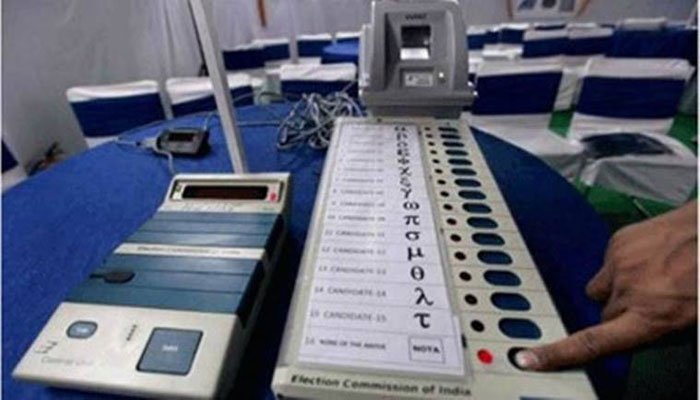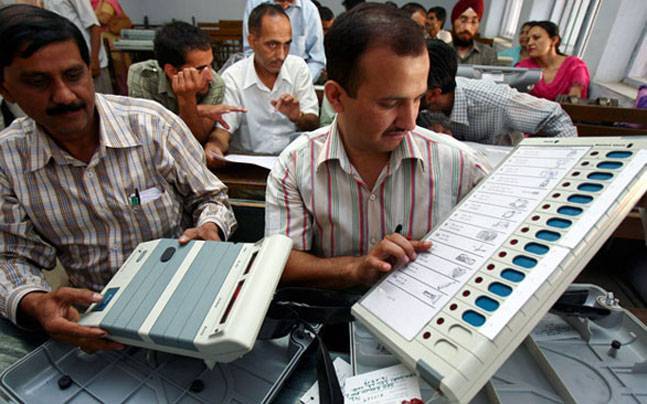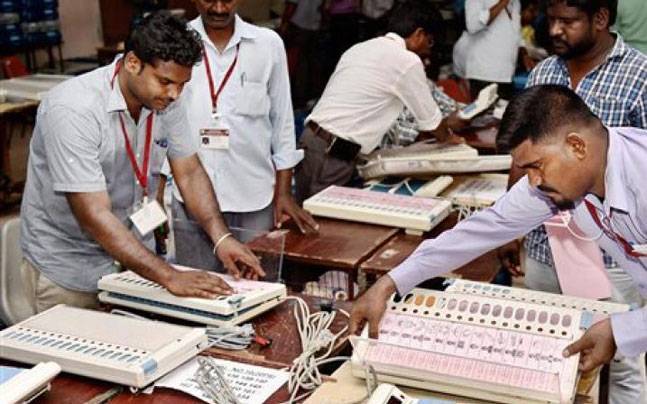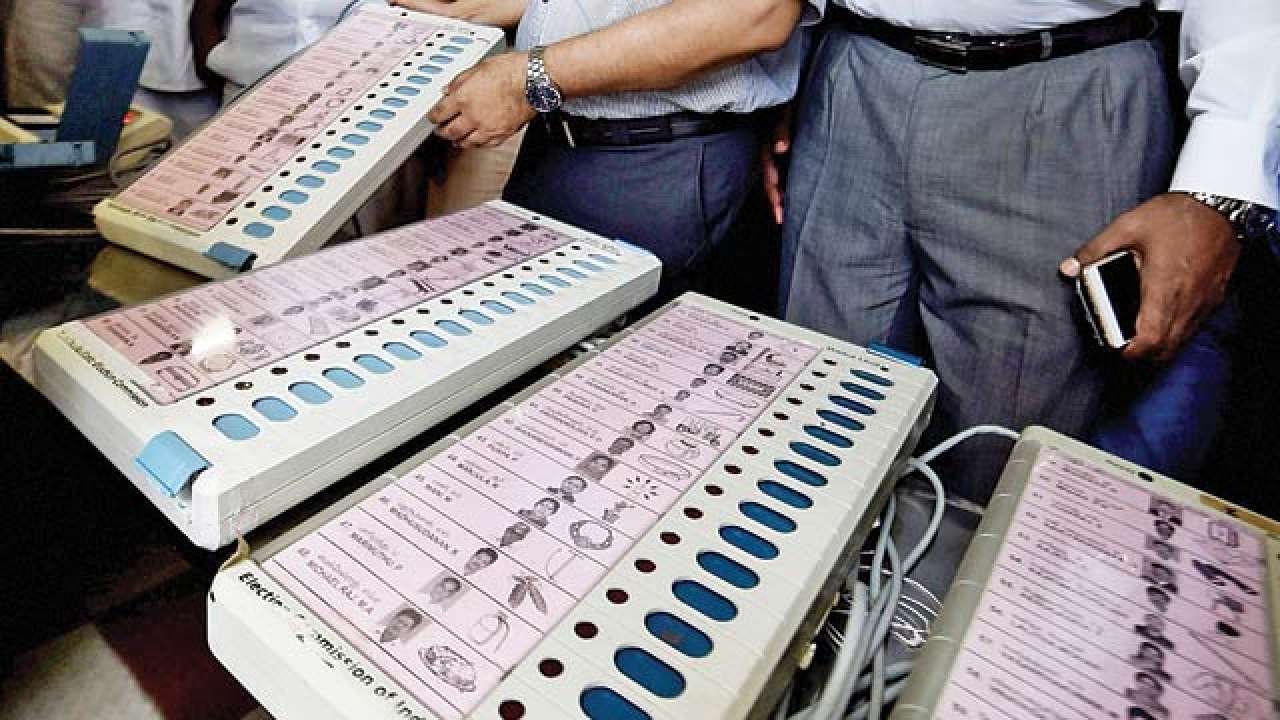ISLAMABAD: The Election Commission of Pakistan (ECP) on Thursday appeared to be unsure about using electronic voting machines (EVMs) in next general elections.
The issue came under discussion at a meeting of the National Assembly’s Standing Committee on Law and Justice and the ECP secretary briefed the panel on the machine.
Pakistan Muslim League-Nawaz MNA Mohsin Shahnawaz Ranjha pointed out serious flaws in the bill on EVM which was adopted during the joint session of parliament on Wednesday.
Mr Ranjha said the bill introduced electronic voting without omitting the proviso of manual voting which meant that at present the Elections Act allowed both electronic and manual voting in elections.
He said the proposed EVM lacked biometric verification facility and it would rely on manual verification. As a result, “someone can cast vote on the computerised national identity card of a dead man”, he added.
On the other hand, Science and Technology Minister Shibli Faraz while addressing a press conference emphasised the significance of EVMs in ensuring a free and fair election.
“Electoral process in the past was compromised and as a result political instability and uncertainty was created. To address such problems, using technology is the way forward. However, political parties today are resisting change to deprive the nation of a transparent electoral process,” he said.

The ECP secretary told the NA standing committee’s that it was premature to confirm use of EVM in next general elections due to certain challenges.
He said the ECP should undertake three to four pilot projects before use of EVM in general elections.
Moreover, the commission still had to figure out exact number of EVMs for each polling station, he added.
Mr Faraz said it is the responsibility of the ECP to decide which machine they choose and what changes could be made in the next two years. “We can make one million machines in a year. We are always ready when the Election Commission needs us,” he said adding that he was sure the ECP would fulfill this responsibility.
Manufactured as per the demand of the ECP, EVM would advance democratic process to ensure political and economic stability, he said.
The committee also considered the Legal Practitioners and Bar Councils (Amendment) Bill, 2020 (Section 5 and schedule), moved by MNA Nafisa Shah.
She said the Sindh Bar Council (SBC) had supported the bill and requested the panel to pass the same.
The committee recommended that an increase of one seat in the SBC for Khairpur district might be approved.
Representatives of the Pakistan Bar Council and SBC did not attend the meeting. Keeping in view a consensus among the members, the committee recommended that the bill as amended be passed by the National Assembly.
The committee also discussed the Legal Practitioners and Bar Council (Amendment) Bill, 2020 (Section 5) moved by MNA Sher Akbar Khan.

He told the committee the Khyber Pakhtunkhwa Bar Council had supported his bill. The committee observed that no written comments in support of the bill had been received by it and hence deferred a decision till its next meeting and for the comments of the KP Bar Council.
The committee also considered the Constitution (Amendment) Bill, 2021 (Article 51 and 106) moved by MNA Zahid Akram Durrani.
During deliberations, the ECP opposed the bill on the ground that as recently the federal government had announced that a fresh population census would be conducted soon, delimitations of constituencies would take place after the census and grievance of the mover of the bill would be addressed after the delimitations.
The Ministry of Law and Justice told the committee that after the merger of the erstwhile Fata with KP, such grievances had already been redressed under Article 51 and 106 of the Constitution.
After deliberations, the committee unanimously recommended that the bill should not be passed by the assembly.
The panel also discussed the Superior Court (Number of Judges) (Amendment) Bill, 2021 moved by MNA Qadir Khan Mandokhail.
The committee deferred a decision on the bill till its next meeting.
The committee also took up the agenda item on the tenure and election procedure of bar associations.

The panel observed that reasonable opportunities had been granted to representatives of lawyers but so far no adequate response had been received from bar associations and bar councils on enhancement of tenure of bar association and procedure of their elections.
Hence, the committee unanimously recommended that the tenure of bar associations should be enhanced from one year to two years, elections of all bar associations, except the Supreme Court Bar Association, should be conducted in December after two years and new cabinets should take over the charge on January 1. Further election campaign should be restricted to maximum two months.
The committee also discussed the recruitment of judges at high courts, prescribing the procedure and prequalification for their appointment. However, it deferred a decision till its next meeting.
The committee also considered the Legal Aid and Justice Authority (Amendment) Bill, 2020, (Section 2, 6 and 9A) moved by MNA Uzma Riaz.
The Ministry of Law and Justice informed the committee that some amendments were agreed during a meeting of the mover of the bill with the minister for law and justice but the same had not been drafted. Hence, the ministry sought time to finalise the draft.
The committee deferred a decision till its next meeting while asking the ministry to finalise the draft before next meeting.

The committee constituted a sub-committee under rule 224(1) of the Rules of Procedure and Conduct of Business in the National Assembly, 2007 for considering the judicial reforms with specific reference to procedure for induction of judges, including an increase in number of judges in superior judiciary.
Minister assails opposition
Mr Faraz said: “The prime minister always invited the opposition for talks on EVM but the opposition wanted the issue to linger on. However, now that the law has been passed, the machine has become a reality,” he said.
“Yesterday was the brightest day in the history of the parliament. If democracy is to take roots in our country, then democratic process must be corrected,” he said.
“We had invited the opposition to test the device to show that it was user friendly and that it ensured transparency in voting process,” he said lamenting that the opposition resisted the new technology without trying out the device and giving logical explanations for their apprehensions.
“The machine revolutionises electoral process. However, the opposition can still register its concerns with the ECP,” he said.
He urged the media to spread awareness about benefits of EVM.
Media person and communication expert for over 25 years. Worked with Dow Jones News, World Bank, CNBC Pakistan, Aaj TV, ARY TV, Abbtakk TV, Business Recorder, Pakistan Observer, Online News Network, TTI Magazine and other local and world Publications.










